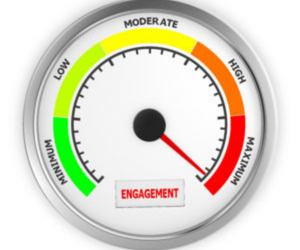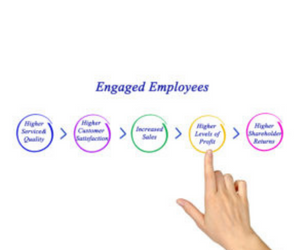News You Can Use: Recent Studies That May Change Your Practice
CALCIUM AND VITAMIN D RECOMMENDATIONS ARE CHANGING
Our long-standing emphasis on calcium and vitamin D supplementation is currently being called into question. In the case of calcium supplementation, there are downsides that in many cases may outweigh the benefits. In the case of vitamin D supplementation, we are not seeing obvious downsides. However, neither are we seeing enough benefit to make a strong case for advocating for supplementation.
There are cases where calcium supplementation is indicated. This includes people who follow a vegan diet, have lactose intolerance, or have osteoporosis. As well as people who have digestive diseases that interfere with the absorption of calcium.
However, for patients who aren’t at obvious risk for inadequate calcium, the risks of supplementation may exceed the benefits. Too much calcium can mean an increased risk of heart attack, stroke, muscle pain, mood disorders, and kidney stones.
Vitamin D supplementation does not have a strong downside risk. However, current research is telling us that the benefits do not seem as strong as we once thought. We need vitamin D, but the issue is, how much do we need? In the past we felt that people with calcium levels below 30 ng/mL would need supplementation. However, current research is causing us to rethink what normal levels of vitamin D are. Current research indicates that a much smaller percentage of women will actually benefit from vitamin D supplementation.
BREAST CANCER SCREENING GUIDELINES HAVE BEEN UPDATED
The American Cancer Society has been studying which approach to breast cancer screening improves health, avoids harm, and eliminates wasteful practices. The current recommendations from the American Cancer Society for average-risk women are: discuss the potential benefits (small reduction in breast cancer mortality) and harms (high false-positive rate, over-diagnosis) of screening with women aged 40-44 and perform annual mammograms in women who opt for screening; perform mammography yearly in women aged 45-54; for those women 55 and older, every 2 years with the choice to continue yearly. Screening should continue every two years as long as a patient is in good health and has a life expectancy of at least 10 years. I now follow these guidelines as they are clear, easy, and evidence based.
BREAST DENSITY AND THE NEED FOR ADDITIONAL SCREENING
Twenty-one states in this country require that patients be notified that they need to talk with their health care provider if tests show that they have increased breast density. However, the new data suggest that other risk factors in conjunction with breast density should determine who should get additional testing. These other risk factors would include all the traditional risk factors for breast cancer such as a strong family history of breast cancer, a previous breast biopsy, early menarche or late menopause.
INDIVIDUALIZE THE LENGTH OF TIME A WOMAN IS ON HORMONE REPLACEMENT THERAPY
New guidelines from the American Congress of Obstetricians and Gynecologists (ACOG) strongly support an individualized approach to how long an older woman should be on hormone replacement therapy (HRT). Some women have troubling and persistent symptoms, such as hot flashes, well into their 60s. If a woman has no contraindications for HRT, such as a family history of breast cancer or diabetes, an arbitrary stopping time doesn’t make sense.
GENETIC TESTING IS VALUABLE FOR ADJUVANTCHEMOTHERAPY
A new study validates the use of genetic testing for determining who will benefit from getting adjuvant chemotherapy. Initially, the recommendation was that all women should get adjuvant chemotherapy. Genetic tests can be conducted to determine who will benefit and who can be spared chemotherapy.
Search Articles
Latest Articles
Ukraine’s Fate and the U.S. Election: A Perspective from the Front Lines
https://foreignpress.org/journalism-resources/ukraines-fate-and-the-us-election-a-perspective-from-the-front-lines Publication –foreignpress.org
New Life for Old Ambulances
https://foreignpress.org/journalism-resources/new-life-for-old-ambulances Publication –foreignpress.org
Prince Mario-Max Schaumburg-Lippe: Orphans International and James Jay Dudley Luce Foundation Celebrate 25 Years of Global Leadership
https://t2conline.com/prince-mario-max-schaumburg-lippe-orphans-international-and-james-jay-dudley-luce-foundation-celebrate-25-years-of-global-leadership Publication –t2conline.com
Mitzi Perdue: I Am An Assassination Attempt Survivor
Mitzi Perdue: I Am An Assassination Attempt Survivor About The PodcastThe newsmaker interviews and the news you need when time is short!
Subscribe to Updates
About Author

Mitzi Perdue is the widow of the poultry magnate, Frank Perdue. She’s the author of How To Make Your Family Business Last and 52 Tips to Combat Human Trafficking. Contact her at www.MitziPerdue.com
All Articles
Be the Person Others Want to Do Business With: Be fair
Be the Person Others Want to Do Business With: Be fairThe Beginnings of the Sheraton Hotel The international Sheraton Hotel Chain grew from an investment of just $1000. My father, his brother, and his college roommate received war bonuses after their military service...
Heart Disease In Women: It’s Different
Heart Disease In Women: It’s DifferentHEART DISEASE IS A WOMAN’S DISEASE In the 1950s, we all thought heart disease was a man’s disease. However, more women are dying of heart disease than men. Also, even though the mortality rates for both men and women are...
Prevent Nightmare House of Horrors: Family Business Quarrel, Part 2
Prevent Nightmare House of Horrors: Family Business Quarrel, Part 2 To prevent a Family Business Quarrel 1. Create a culture emphasizing that family members are part of something bigger than themselves. Being too self-centered is a danger in a family business....
Preventing Nightmare House of Horrors, a Family Quarrel, Part 1
Preventing Nightmare House of Horrors, a Family Quarrel, Part 1Since you’re here reading this, the subject probably hits close to home. If so, you have my entire sympathy. If ever there’s a high stakes situation, it’s the family quarrel in a family business. I’ve had...
Four Things Frank Perdue Did to Encourage Employee Engagement
Four Things Frank Perdue Did to Encourage Employee Engagement Employee engagement is one of the most important – possibly the most important factor in an organization’s success. When I look at how Frank Perdue (my late husband) built his chicken company from a...
Employee Engagement – Gallup Really Knows!
Employee Engagement - Gallup Really Knows!Visit Gallup, the People Who Really Know There are 1.3 billion full-time employees in the world. Give a guess: how many feel enthusiastic about and committed to their work? 1) 13% 2) 30% 3) 82% 4) How the heck could anybody...




